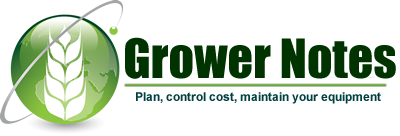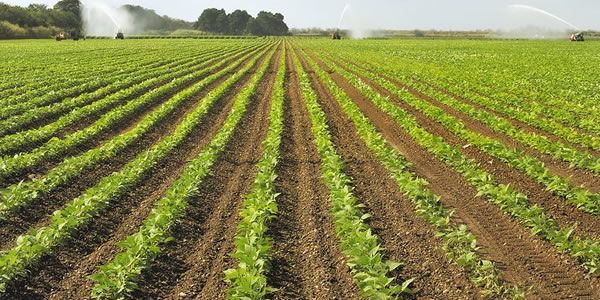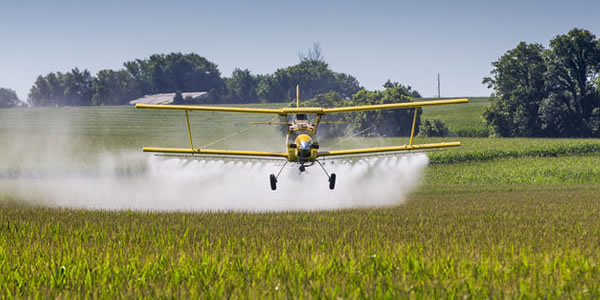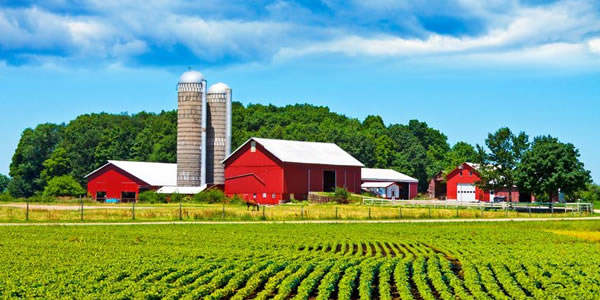



In today’s fast-paced agricultural world, managing a farm is more complex than ever before. With the growing demands for sustainability, efficiency, and productivity, farmers must adopt smarter, more streamlined ways to handle their daily operations. That’s where Grower Notes comes in.
Farm management software is revolutionizing the way farmers track, analyze, and optimize their daily tasks. From crop planting and field management to inventory control and labor scheduling, FMS helps streamline processes and improve decision-making. Here’s how farm management software can make your farm more efficient and organized.
Traditionally, managing a farm often involved relying on physical logs, paper records, and scattered spreadsheets. This can lead to confusion, missed details, and errors. With farm management software, all your data is centralized in one platform. Whether it’s planting schedules, irrigation needs, field conditions, or inventory levels, you can input and track all your farm’s key metrics in real-time.
Having everything in one place makes it easier to access the information you need without flipping through multiple binders or screens. Plus, the ability to search and filter data instantly saves you time and ensures nothing slips through the cracks.
Managing daily tasks on the farm can be overwhelming, especially when there’s a long list of activities to coordinate. Farm management software allows you to create and assign tasks, set deadlines, and monitor progress, all from a centralized dashboard.
For instance, if you're in charge of irrigation, you can create recurring reminders based on weather forecasts and soil moisture levels. Similarly, if you have a team of workers, you can assign tasks like planting, harvesting, or spraying pesticides to specific individuals and track their progress in real-time. This not only helps ensure that tasks are completed on time but also provides accountability for every worker on your team.
Managing inventory is critical to running a successful farm, but it can be cumbersome without the right tools. Farm management software allows you to track supplies like seeds, fertilizers, chemicals, and equipment. You can set automatic alerts when inventory levels are low, so you never run out of essential resources during peak seasons.
Additionally, FMS can help you optimize the use of resources by tracking usage patterns. For example, you can see how much water or fertilizer is being used in each field and make adjustments to avoid waste. This not only saves you money but also promotes sustainable farming practices.
Data is one of the most valuable resources a farmer can have. However, collecting data manually and interpreting it can be time-consuming and error-prone. Farm management software automates this process, allowing you to collect data in real time and analyze it for trends and patterns.
For example, if you’re managing multiple crops, the software can generate reports on yield estimates, soil health, pest activity, and more. By analyzing this data, you can make better decisions regarding irrigation schedules, pest control measures, and crop rotation plans—ultimately improving yields and reducing costs.
Effective crop planning is key to maximizing farm productivity and minimizing waste. Farm management software allows you to map out crop rotations, track planting and harvest dates, and monitor soil conditions throughout the growing season. By managing these factors more efficiently, you can avoid overplanting or underutilizing your land and resources.
Field management features in FMS also allow you to track field-specific data such as soil moisture, temperature, and nutrient levels. With this information, you can adjust farming practices to suit each field’s unique needs, improving crop health and reducing the risk of disease or poor yields.
On larger farms, managing a workforce can become a logistical challenge. With farm management software, you can easily track employee hours, assign tasks, and schedule shifts—all from a single platform. The software can help you forecast labor needs based on seasonal requirements, so you’re never over- or under-staffed.
Additionally, by tracking performance data and task completion, you can ensure that workers are staying productive and focused on high-priority tasks. This streamlined approach to labor management saves you time and resources, and ensures that your team is working as efficiently as possible.
Staying on top of your farm’s finances is crucial to ensuring long-term success. Farm management software offers built-in financial tools that allow you to track expenses, monitor income, and create budgets. You can categorize expenditures (e.g., seed costs, fuel, equipment repairs) and even track the ROI of specific crops or operations.
This level of financial insight helps farmers make more informed decisions about spending and resource allocation, ultimately leading to better profitability. Additionally, by having all financial records in one place, you’ll be ready for tax season, audits, or any other financial reviews with minimal stress.
Farmers today must comply with various regulations, whether it’s environmental standards, safety protocols, or pesticide usage rules. Farm management software can help you stay on top of these regulations by tracking compliance and generating necessary reports. This reduces the risk of costly fines and ensures that you meet all legal requirements.
Moreover, farm management software often includes features to help with certifications related to organic farming, sustainability practices, and other industry standards. By keeping your farm’s records organized and up to date, you’ll have all the documentation needed to demonstrate compliance.
One of the biggest advantages of modern farm management software is its cloud-based nature. This means that you can access your farm’s data from anywhere, whether you’re in the office, out in the field, or on the road. With mobile-friendly apps, you can update records and make decisions on the go—giving you the flexibility to manage your farm in real-time, no matter where you are.
Cloud storage also ensures that your data is secure and regularly backed up, giving you peace of mind in case of hardware failure or other technical issues.
Farm management software isn’t just for large-scale farms—it’s for any farmer looking to streamline operations, reduce waste, and improve profitability. By centralizing data, simplifying task management, optimizing resources, and providing real-time insights, FMS helps farmers make smarter decisions and operate more efficiently.
As technology continues to evolve, farm management software will only become more powerful and essential for modern farming. If you haven’t yet explored the benefits of farm management software, now is the time to start. The future of farming is smarter, more efficient, and data-driven—and with the right tools, you’ll be well-positioned to succeed in an increasingly competitive industry.

Experienced farmers understand that nurturing the soil is key to letting nature do the heavy lifting when it comes to plant growth. Monitoring soil health is vital for ensuring a successful growing season. Grower Notes provides the perfect tool to help you keep track of your field's condition and document any changes you implement to boost crop productivity.

Our crop planner is your all-in-one solution for managing tasks, expenses, and detailed notes. Customize your own note categories or use ready-made templates for added convenience. Easily track, update, and review a year-end summary of your costs. Plus, view your complete crop history at a glance through the field module records.

Effortlessly manage treated crops, pesticide usage, and application schedules all in one place. Our centralized records make generating usage reports simple and stress-free. Say goodbye to complicated spreadsheets and paper logs—our software streamlines the process, providing a quick and efficient solution.
More Information
Use our Project Module to plan and manage a wide range of projects, from building a barn to other farm initiatives. Easily track tasks, expenses, and key details to ensure nothing gets missed. While project management can seem daunting, our tool simplifies the process, empowering you to create well-structured, detailed projects with ease and confidence.
More Information